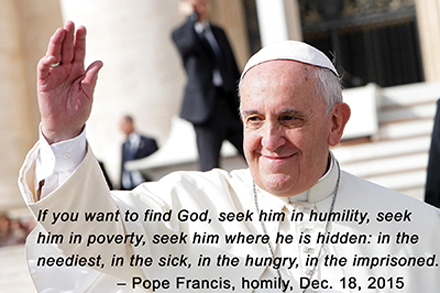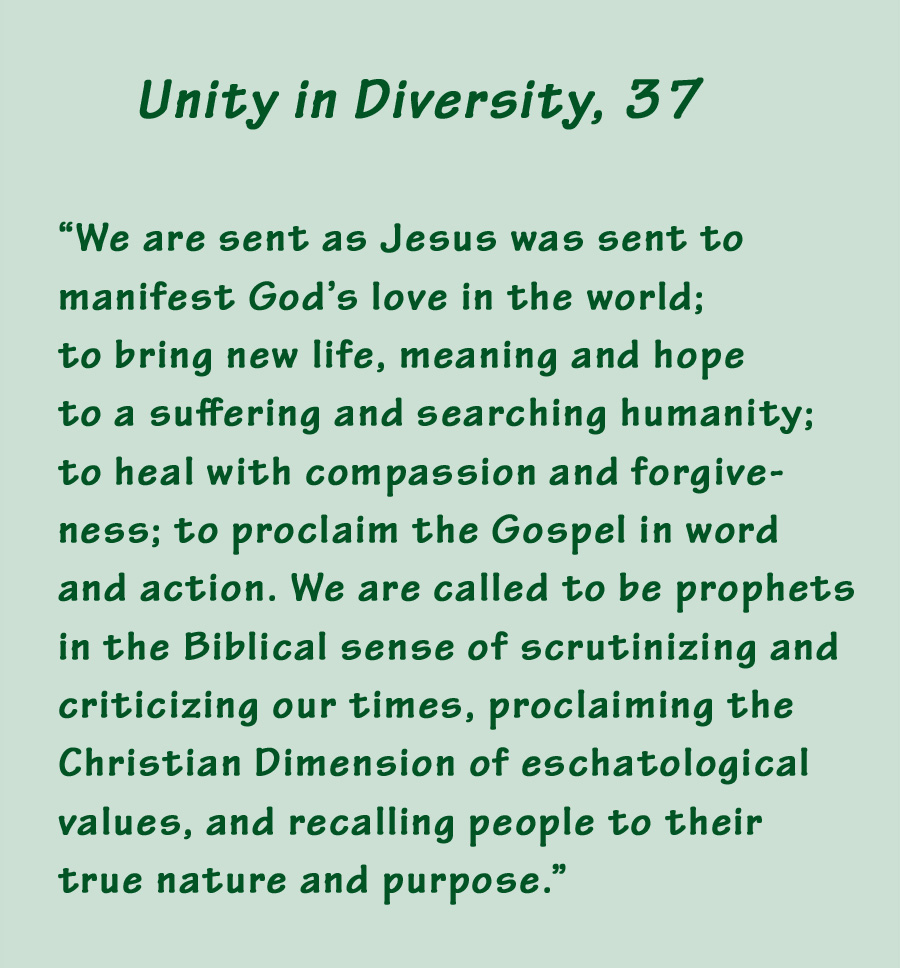Through the lens of mercy: reflecting upon the perils of our world
by Jean Moore, FSPA

It is not my custom to discuss politics in a non-dialogical format such as a written article. I begin by saying that I will incorporate a political, social and economic environment to address the corporal and spiritual works of mercy with the intention of exploring our personal and communal responses of mercy within our environment. That said, consider all the political rhetoric we hear as we enter into the full electoral process; consider the dramatic challenges facing the nations around the world due to terrorism, separatism, militarism and the many other “-isms” of our times; and consider the effect this has on us in our daily living, thinking, loving and being.
It is overwhelming! During this Jubilee Year of Mercy, Pope Francis has encouraged us to integrate the corporal and spiritual works of mercy into our lives, not just to celebrate them, understand them, or ritualize them. It is imperative that we know and understand what they are and that we find ways to bring them to light! It is even more imperative that these acts of mercy become intertwined threads of our way of being, thinking, living and loving and the lens by which we see the world.

As we hear about, and react to, the ravages of hate, discrimination, terrorism, civil unrest, genocide and extreme deprivation through oppression, perhaps we need to reflect upon the humane implications of these conditions, not just the political partisanship or economic impact of these conditions on our lives. We can respond with mercy to these conditions by reflecting upon them in light of the corporal and spiritual acts of mercy. For example, the reports of the genocide of the people of Fallujah by ISIS are gruesome and difficult to hear. A temptation would be to think of it only in terms of our involvement in Iraq in the 1990s and early 21st century and the political arguments of our withdrawal of troops from the country. This line of thinking allows us to detach ourselves from the reality of what is happening to the people of God in Fallujah and in many other places of similar experience. The incident remains in our head, and never reaches our heart. If we were to reflect on this reality of human devastation in light of mercy, our responses would be radically different. They would come from the heart. They would help us to understand more fully our reliance on God to inspire us toward a more comprehensive and effective loving response (on behalf of the people involved, not just to the military, political and economic side of the incident).
I invite you to reflect upon the perils of our world—literally and metaphorically—in light of the corporal works of mercy: to feed the hungry, to give drink to the thirsty, to clothe the naked, to give shelter to the homeless, to care for the sick, to ransom the captive, to protect the dignity of the human person, and to care for our common home. Perhaps Clare of Assisi’s process of Gaze upon Christ, Consider Christ, Contemplate Christ, and Dare to Imitate Christ might be a suitable way to perceive what is happening through the lens of mercy and compassion. Perhaps our reflection will lead to a recognition of the dignity of all creation as we participate in its care and sustainability; and to recall people to their true nature and purpose.


